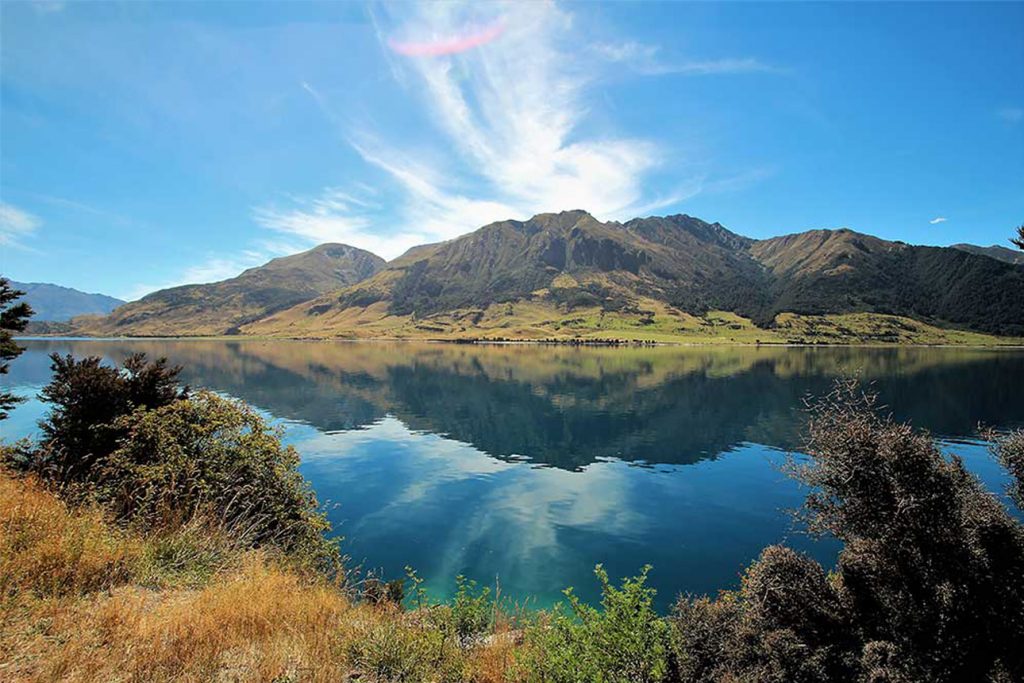Code of Care for our place in Te Wahipounamu
This place is very unique and special and is home to many rare and endangered species of flora and fauna.
Wildsouth Discovery is committed to sustainable tourism practises and minimising our impact on the environment while on our privately guided custom New Zealand tours. We strive to improve our environmental performance in all areas of our business practice and in the experiences that we offer. Wildsouth Discovery acknowledges that business activity creates environmental and social impacts through their activities and we are no exception. We endeavour to actively reduce any adverse effects and provide an environmental and socially responsible service to our guests.

Wildsouth Discovery is committed to:
- protecting wildlife and natural habitats – treat New Zealand’s flora and fauna with care and respect.
- keep streams, rivers & lakes clean.
- keep to the tracks when walking – reduce damaging fragile/native plants.
- respect cultural heritage – many places in New Zealand have a spiritual significance. Please treat these places with consideration and respect
- think before we discard – we always try to reduce waste and recycle.
Tourism is a balancing act between exploring and exploiting the local conservation estate and culture. We treasure the splendid isolation and tranquillity that New Zealand offers and yet we lessen it each time we visit. Careful stewardship of our conservation estate is critical if it is to be maintained for future generations.
Department of Conservation Concessionaire
The Department of Conservation is the central government organization charged with conserving New Zealand’s natural and historic heritage for all to enjoy now and in the future
Wildsouth Discovery underwent a rigorous assessment process that included providing an independently audited Health, Safety and Emergency Plan to become a Department of Conservation (DOC) Concessionaire.
A portion of your tour cost is given to the Department of Conservation to help in the preservation and conservation of New Zealand’s natural treasures and heritage sites.
You can learn more about the Department of Conservation.
Whatungarongaro
te tangata, toitu te whenua!
(People move on, but always the land remains!)
View Wildsouth Discovery’s Kaitiakitanga
(Passion for the environment)
We undertake to be “eco-wise” and aim to…

Be “waste-wise” – litter is unattractive and litter-free places are healthy places. Waste is harmful to wildlife and can increase vermin and disease and is hazardous if disposed of incorrectly.
Reduce the amount of waste we make and dispose of it responsibly.
Don’t litter – we always put our rubbish in rubbish bins or take it away with us when we leave. Carry out what we carry in!
To remove rubbish – we always pick litter when walking on trails.
Reuse and recycle –
- Reuse water bottles or preferably do not use them at all
- Reuse plastic bags or try not to use them at all
- Seek out recycling centres for paper, glass, plastic and cans.
We dispose of waste sensibly.

Be “water-wise” – lakes, rivers, beaches and harbours are our treasures and the habitat of many plants, fish and bird species. When enjoying our waterways, we are always to keep them free of rubbish, spills and introduced species, so that they can be enjoyed by generations to come.
We help by –
- washing and drying our boots between waterways to prevent the spread of unwanted pests like didymo (freshwater algae)
- using water sparingly
Water is a precious resource and many New Zealand towns and cities experience water shortages during the summer months.

Be “energy-wise” – using less energy helps reduce the amount of greenhouse gases in our air. This is because fewer fossil fuels are being burnt to produce electricity.
We help by –
- switching off our electrical equipment when not in use
- turning off the lights when you leave the room
We always endeavour to turn off lights, equipment and appliances when not needed or when we leave a room. We ask that you consider the same.

Be “travel-wise” – around 20% of New Zealand’s greenhouse gas emissions come from transport.
We help reduce this and save fuel by –
- always driving according to the speed limits and to the conditions
- switching off our engine when stopped
- using fuel-efficient vehicles
- reducing the time we use air-conditioning
We have a policy of minimal impact and strive to leave no trace of our activities behind. The next group or person visiting should not be able to see that we were even there, apart perhaps from our footprints. The landscape or wildlife should not be altered in any way by our visit.
